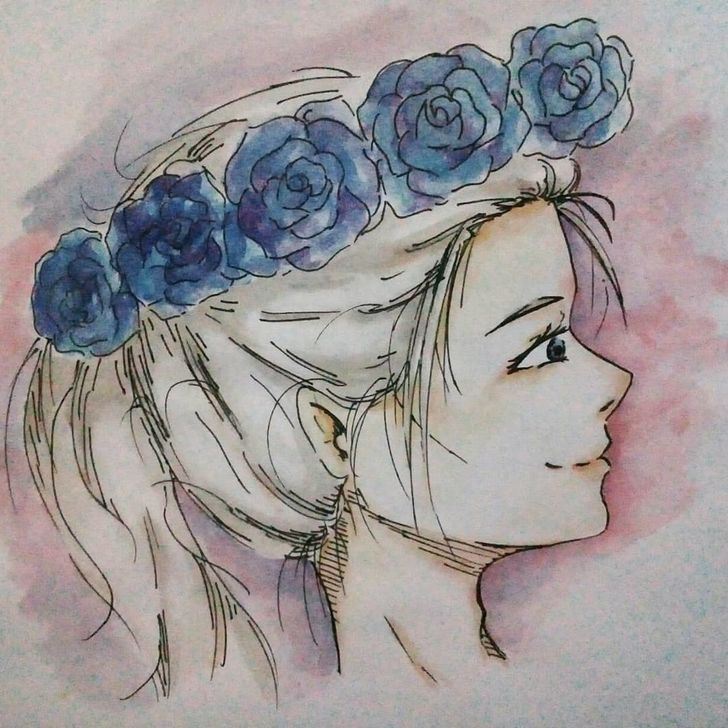When I was four-years-old, I told my mother I wanted to be an artist when I grew up.
Sure enough, every Christmas and every birthday I was given art supplies. They bought me oil paints and canvas when I was seven. I had an easel in my bedroom for years. When we moved, my mother talked about making the spare room my studio. Suffice it to say, I was never short on support.
There were periods of my life when I would paint every day. That's how the first 17 years of my life had been, for the most part. It wasn't just something I did, it felt like more than a hobby — it became part of who I was. I built an identity around my art. I was "the art kid." For a long time, it was my only passion, even if I had decided a long time ago not to study art in college.
Something changed about it in my senior year of high school. I wasn't advancing the way I wanted to. I was constantly frustrated with my work and blamed it on my lack of skill and talent. I started comparing myself to others in the worst ways, and it got to the point where I was embarrassed to show my art or start a new piece because I knew it wouldn't be as good as everyone expected it to be.
I started ruining my own experience, and a big part of me fell out of love with painting. I gave up on my ambitions and just promised myself that I would keep painting whenever I could find the time.
I want to say it was tragic when I stopped painting, but I hardly noticed at first. At some point, I looked up and realized I hadn't picked up a paintbrush in almost a year. I wasn't devastated because I had stopped painting. I was devastated because it felt like I had lost myself. I didn't know who I was if I wasn't painting. So, I tried to start again.
I pulled out all my supplies, set up shop at my desk, and started painting with no particular image in mind. I thought just the act of putting paint on paper would comfort me, and it did. Until suddenly it didn't. I slipped into my old self-depreciating habits a lot easier than I'd like to admit. Before I knew it, I was in the middle of one of the worst panic attacks I've ever had.
I've been staying away from it since then. I didn't want to feel that again. I didn't want to give those feelings an outlet, even if I knew it would be healthier to let it go. It was another year or so before I picked up a paintbrush again. A friend of mine came to my house over the summer and asked me to paint with him.
It was good, in a way, to work next to someone that was just painting for the enjoyment of it. But at the same time, it didn't. It might sound artificial to some people, but there's something about painting that takes an incredible amount of emotional energy. The frustration, the doubt, the overwhelming self-critique — those I remembered well, but I had forgotten how draining art can be.
Still, I miss it, even if I don't regret my decision to pursue English instead. I'm realizing that there are a lot of different types of art, and not painting doesn't make me less of an artist. I am still myself, even if I'm only beginning to understand that I've never truly known what that means.
I think I could love being an amateur artist in my free time, but it might be a while before I let myself try again. For now, it still hurts too much. I've started focusing my energy on other creative outlets, namely writing.
I was talking to one of my best friends who studies fine arts at RIT and she told me how art was never a question for her. She said, "Art feels more like a lifestyle." Something about that struck me because I spend a lot of time thinking more about the type of life I want to live than the career I want to have. I think that's a good way to look at things: where do you want your energy to go?
That's a terribly oversimplified way of thinking, but it gets to the heart of it. I gave up painting for a lot of reasons, but mostly because I couldn't give all my energy to it anymore. Nothing worth pursuing will ever come easily, but I'm starting to find better options for me.
















